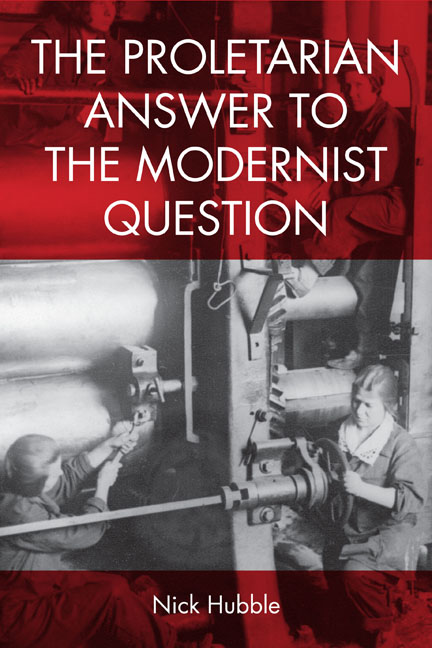Book contents
- Frontmatter
- Contents
- Acknowledgements
- Introduction
- 1 ‘Her Heritage Was that Tragic Optimism’: Edwardian Pastoral
- 2 ‘The Common Life’: Women and Men after the General Strike
- 3 ‘She Had Finished with Men Forever’: Lewis Grassic Gibbon's Grey Granite
- 4 ‘The Raw Material of History’: John Sommerfield's May Day
- 5 ‘None of That “My Good Woman” Stuff’: Outsider Observations
- Conclusion
- Bibliography
- Index
2 - ‘The Common Life’: Women and Men after the General Strike
Published online by Cambridge University Press: 23 June 2018
- Frontmatter
- Contents
- Acknowledgements
- Introduction
- 1 ‘Her Heritage Was that Tragic Optimism’: Edwardian Pastoral
- 2 ‘The Common Life’: Women and Men after the General Strike
- 3 ‘She Had Finished with Men Forever’: Lewis Grassic Gibbon's Grey Granite
- 4 ‘The Raw Material of History’: John Sommerfield's May Day
- 5 ‘None of That “My Good Woman” Stuff’: Outsider Observations
- Conclusion
- Bibliography
- Index
Summary
Some day men will cultivate their happiness in gardens
Ours is essentially a tragic age, so we refuse to take it tragically. The cataclysm has happened, we are among the ruins, we start to build up new little habitats, to have new little hopes. It is rather hard work: there is now no smooth road into the future: but we go round, or scramble over the obstacles. We've got to live, no matter how many skies have fallen. (Lawrence 1994: 5)
The opening of Lady Chatterley's Lover (1928) encapsulates something of the magnitude of the change to consciousness that happened over the early part of the twentieth century even though many tried to carry on as before. Paul Mason cites this passage in connection to the English aristocracy retreating shattered into its stately homes after 1918 as a comparison for the behaviour of the global financial elite after the catastrophe of 2008, equally determined to carry on as before and ignore the fact that the whole global economic system was now on borrowed time (Mason 2015: 258). The defining feature of such tragic/catastrophic situations is that they cannot be negotiated with respect to the past because the problem is precisely that the past order has collapsed beyond salvage. There needs to be a sense of the future to provide a perspective and this is present in Lady Chatterley's Lover in the reconfigured gender and class relations that Lawrence imagines at the end of the novel:
If the men wore scarlet trousers, as I said, they wouldn't think so much of money: if they could dance or hop and skip, and sing and swagger and be handsome, they could do with very little cash. And amuse the women themselves, and be amused by the women. (Lawrence 1994: 299)
Both this passage and Lady Chatterley's Lover itself have been the subject of a fair amount of amusement over the years, which has tended to undermine the radical nature of Lawrence's utopian imagination and the logic of his argument. It is the possibility of this implicitly classless and not-sexually-repressed future that opens up the prospect at the end of the novel of Lady Constance Chatterley being able to live happily in a mutually consensual relationship with ‘her husband's gamekeeper’ Oliver Mellors on a small farm.
- Type
- Chapter
- Information
- The Proletarian Answer to the Modernist Question , pp. 87 - 111Publisher: Edinburgh University PressPrint publication year: 2017



